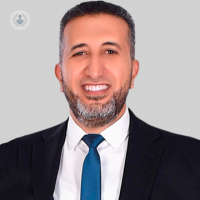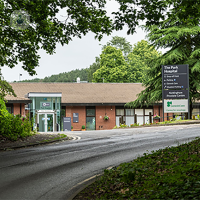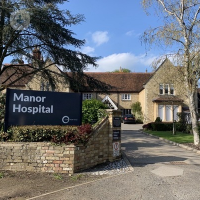What is ambulatory ECG monitoring?
Ambulatory ECG (electrocardiogram) monitoring is used to detect arrhythmias (abnormal heart rhythms). It does this by recording the electrical activity of the heart while you perform the normal activities of your day-to-day life.
There are different types of ambulatory monitor and the most suitable one for you depends on several factors, including how long your heart must be monitored for. During the test, you may wear a battery-operated recorder (a holter) which has electrodes (small discs) that are taped to your chest - your doctor will help you with fitting the monitor correctly. Alternatively, you may be offered a monitor that is surgically implanted under the skin or a device that is worn on your wrist like a watch.

What does it consist of?
‘Ambulatory’ means that you can move around as normal. This makes ambulatory ECG monitoring different from standard ECG monitoring where you are relatively still. As you go about your regular activities, the ECG monitor you are wearing will record your heart’s electrical activity and detect if there are any abnormal heart rhythms during specific activities.
Why is it done?
Patients can be referred to have an ECG when they experience syncope (fainting) and palpitations. These symptoms can be a sign of potentially dangerous heart rhythms.
In some cases of arrhythmia, patients experience symptoms but these symptoms disappear by the time they see a doctor. Ambulatory ECG monitoring can assess the heart for an extended period of time (from hours to days), unlike standard ECG monitoring which lasts seconds. While standard ECG monitoring is effective in diagnosing many heart conditions, ambulatory monitoring can be more effective for arrhythmia detection due to its prolonged recording that allows infrequent arrhythmias to be discovered.
Preparation for ambulatory ECG monitoring
You should let your doctor know about any medication you’re taking – some medications may affect the test’s results.
What to expect during the test?
As you go about your daily activities, you may be asked to keep a diary of all your activities and symptoms while wearing the monitor. This will help your doctor when evaluating the test results.
After the test, you will return to the clinic and have your monitor removed. Your doctor will then read the test results and if you were required to keep a diary of activities, they will compare the timing of your symptoms and activity with the heart readings.
What do abnormal results mean?
If cardiac arrhythmias are detected, appropriate treatment will be offered.
05-22-2020 04-21-2023Ambulatory ECG monitoring
Dr Mokhtar Ibrahim - Cardiology
Created on: 05-22-2020
Updated on: 04-21-2023
Edited by: Conor Lynch
What is ambulatory ECG monitoring?
Ambulatory ECG (electrocardiogram) monitoring is used to detect arrhythmias (abnormal heart rhythms). It does this by recording the electrical activity of the heart while you perform the normal activities of your day-to-day life.
There are different types of ambulatory monitor and the most suitable one for you depends on several factors, including how long your heart must be monitored for. During the test, you may wear a battery-operated recorder (a holter) which has electrodes (small discs) that are taped to your chest - your doctor will help you with fitting the monitor correctly. Alternatively, you may be offered a monitor that is surgically implanted under the skin or a device that is worn on your wrist like a watch.

What does it consist of?
‘Ambulatory’ means that you can move around as normal. This makes ambulatory ECG monitoring different from standard ECG monitoring where you are relatively still. As you go about your regular activities, the ECG monitor you are wearing will record your heart’s electrical activity and detect if there are any abnormal heart rhythms during specific activities.
Why is it done?
Patients can be referred to have an ECG when they experience syncope (fainting) and palpitations. These symptoms can be a sign of potentially dangerous heart rhythms.
In some cases of arrhythmia, patients experience symptoms but these symptoms disappear by the time they see a doctor. Ambulatory ECG monitoring can assess the heart for an extended period of time (from hours to days), unlike standard ECG monitoring which lasts seconds. While standard ECG monitoring is effective in diagnosing many heart conditions, ambulatory monitoring can be more effective for arrhythmia detection due to its prolonged recording that allows infrequent arrhythmias to be discovered.
Preparation for ambulatory ECG monitoring
You should let your doctor know about any medication you’re taking – some medications may affect the test’s results.
What to expect during the test?
As you go about your daily activities, you may be asked to keep a diary of all your activities and symptoms while wearing the monitor. This will help your doctor when evaluating the test results.
After the test, you will return to the clinic and have your monitor removed. Your doctor will then read the test results and if you were required to keep a diary of activities, they will compare the timing of your symptoms and activity with the heart readings.
What do abnormal results mean?
If cardiac arrhythmias are detected, appropriate treatment will be offered.
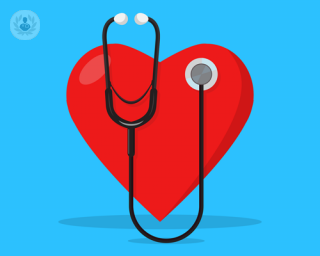

St Mary’s Hospital Cardiac Care Unit and Services Offered
By Dr Mark Connaughton
2024-12-24
Highly-experienced consultant cardiologist Dr Mark Connaughton practises at St Mary’s Hospital Cardiac Care Unit, which he has provided us information on what it is, what services are offered there, and basic cardiac testing information the public should know. See more
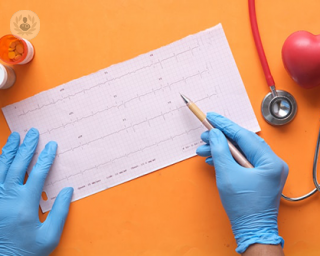

An expert guide to supraventricular tachycardia (SVT)
By Dr Anita Arya
2024-12-24
We invited revered consultant cardiologist Dr Anita Arya to share her expert insight on supraventricular tachycardia, a heart condition in which patients experience episodes of an abnormally fast heart rate. See more
Experts in Ambulatory ECG monitoring
-
Dr Ayyaz Sultan
CardiologyExpert in:
- Hypertension (high blood pressure)
- Palpitations
- PoTS syndrome
- Ambulatory ECG monitoring
- Tilt table
- Long Covid
-
Professor Michael Mahmoudi
CardiologyExpert in:
- Chest pain
- Shortness of breath
- Palpitations
- Hypertension (high blood pressure)
- Coronary angioplasty
- Ambulatory ECG monitoring
-
Dr Amar Mistry
CardiologyExpert in:
- Ambulatory ECG monitoring
- Echocardiogram
- Heart check up
- Implantable cardioverter defibrillator (ICD)
- Pacemaker
- Cardiomyopathy
-
Dr Laszlo Halmai
CardiologyExpert in:
- Stress test
- Cardiac screening
- Echocardiogram
- Ambulatory ECG monitoring
- Coronary CT
- Heart failure
- See all

The Saxon Clinic - part of Circle Health Group
The Saxon Clinic - part of Circle Health Group
V7 Saxon St, Coffee Hall, Milton Keynes MK6 5LR
No existe teléfono en el centro.
By using the telephone number provided by TOP DOCTORS, you automatically agree to let us use your phone number for statistical and commercial purposes. For further information, read our Privacy Policy
Top Doctors

The Park Hospital - part of Circle Health Group
The Park Hospital - part of Circle Health Group
Sherwood Lodge Drive, Burntstump Country Park, Arnold, Nottinghamshire NG5 8RX
No existe teléfono en el centro.
By using the telephone number provided by TOP DOCTORS, you automatically agree to let us use your phone number for statistical and commercial purposes. For further information, read our Privacy Policy
Top Doctors

The Manor Hospital - part of Circle Health Group
The Manor Hospital - part of Circle Health Group
Church End, Biddenham, Bedford MK40 4AW
No existe teléfono en el centro.
By using the telephone number provided by TOP DOCTORS, you automatically agree to let us use your phone number for statistical and commercial purposes. For further information, read our Privacy Policy
Top Doctors
-
The Saxon Clinic - part of Circle Health Group
V7 Saxon St, Coffee Hall, Milton Keynes MK6 5LR, Milton KeynesExpert in:
- General Surgery
- Orthopaedic surgery
- Gastroenterology
- Obstetrics and Gynaecology
- Paediatrics
- Urology
-
The Park Hospital - part of Circle Health Group
Sherwood Lodge Drive, Burntstump Country Park, Arnold, Nottinghamshire NG5 8RX, ArnoldExpert in:
- General Surgery
- Maxillofacial Surgery
- Oral surgery
- Plastic surgery, reconstructive and aesthetics
- Obstetrics and Gynaecology
- Podiatry
-
The Manor Hospital - part of Circle Health Group
Church End, Biddenham, Bedford MK40 4AW, BedfordExpert in:
- General Surgery
- Orthopaedic surgery
- Physiotherapy
- Obstetrics and Gynaecology
- General practice
- Urology
- See all
- Most viewed diseases, medical tests, and treatments
- Electrophysiology study
- Genetic testing
- Anxiety
- Long Covid
- Medicolegal
- Robotic surgery
- Hypertension (high blood pressure)
- MRI
- Fatty liver
- Cholesterol
